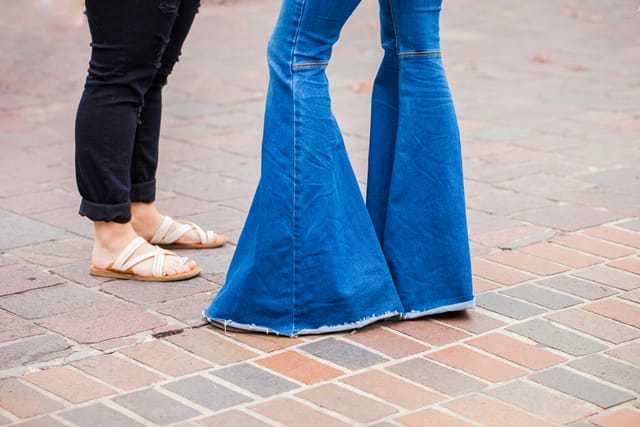Whether it’s reminiscing about cherished memories or holding onto nostalgia for simpler times, many people find themselves living in the past. This tendency to dwell can manifest in various ways, but no matter what it looks like, it can stop people from living in the present. Here are 16 behaviors that people who live in the past often display.
1. They resist changes in their environment or community.
Showing resistance or discomfort towards changes in their local environment, workplace, or community can indicate a deep-seated longing for the past. This resistance can manifest as opposition to new developments, nostalgia for “how things used to be,” or difficulty adapting to shifts in social or cultural norms.
You may also like: People Who Had Unhappy Childhoods Usually Develop These Traits
2. They maintain outdated fashion or decor preferences.

Holding onto old-fashioned styles or home decor as a security blanket indicates a reluctance to move forward and embrace change, which can affect their social interactions and living environment.
Don’t miss out – follow Bolde for exclusive content daily
3. They use past successes to define their identity.

Relying on past achievements to define their self-worth, without seeking new goals, can prevent them from pursuing further successes and personal fulfillment.
You may also like: How A Narcissist Acts When You Start Seeing Through Their BS
4. They often express regret over past decisions.
Frequently expressing regret or lamenting over past choices, without focusing on lessons learned or current opportunities, can be a sign of being stuck in the past. This mindset can prevent them from taking positive steps in the present due to fear of repeating past mistakes.
Don’t miss out – follow Bolde for exclusive content daily
5. They seek out nostalgia in entertainment and media.

A preference for entertainment and media from a bygone era to the exclusion of new content can indicate a comfort in the past that overshadows the present.
You may also like: 15 Things To Keep To Yourself Because They’re Nobody’s Business But Yours
6. They have a pessimistic view of the future.

A tendency to view the future with pessimism or fear often stems from an overattachment to the past and a reluctance to face new challenges.
Don’t miss out – follow Bolde for exclusive content daily
7. They hold grudges from past conflicts.

Holding onto old grudges and not forgiving past wrongs can poison current relationships and personal well-being, trapping them in a cycle of resentment.
You may also like: How A Narcissist Acts When They Can’t Fool You Anymore
8. They resist new technologies and trends.

A strong preference for the way things used to be can lead to resistance toward adopting new technologies or embracing current trends, which can hinder personal and professional growth.
Don’t miss out – follow Bolde for exclusive content daily
9. They frequently reminisce about “the good old days.”

Individuals stuck in the past often talk about past times as if they were significantly better than the present, showing a reluctance to appreciate current moments.
You may also like: 16 Signs You Didn’t Get Enough Affection As A Child
10. They struggle to form new relationships.

An overemphasis on past relationships can prevent them from forming new, meaningful connections, limiting their social circle to those who share their nostalgia.
Don’t miss out – follow Bolde for exclusive content daily
11. They frequently compare the present to the past.

A constant comparison between “then” and “now” can lead to dissatisfaction with the present, making it difficult to find joy in current experiences.
You may also like: 18 Personality Traits Of An Unhappily Married Man
12. They have difficulty letting go of old belongings.

A reluctance to declutter or part with items from the past, regardless of their current usefulness, signifies an emotional tie to the past that hinders moving forward.
Don’t miss out – follow Bolde for exclusive content daily
13. They repeat the same stories from the past.

Telling the same stories from their past repeatedly indicates a comfort in those memories that surpass their interest in creating new ones.
You may also like: Don’t Share These 15 Things With Anyone – They’re Nobody’s Business But Yours
14. They idealize past relationships or experiences.

Idealizing past relationships or experiences without acknowledging their flaws can lead to unrealistic expectations for current and future relationships and situations.
Don’t miss out – follow Bolde for exclusive content daily
15. They resist personal growth or change.

A lack of interest in self-improvement or changing outdated behaviors and attitudes can stem from comfort in the familiarity of their past selves.
You may also like: Things Narcissists Say To Shut You Down When You Confront Them
16. They are reluctant to try new experiences or hobbies.
Avoiding new activities or hobbies in favor of pastimes from their youth can limit their personal growth and enjoyment of the diverse experiences life has to offer.
Enjoy this piece? Give it a like and follow Bolde on MSN for more!






